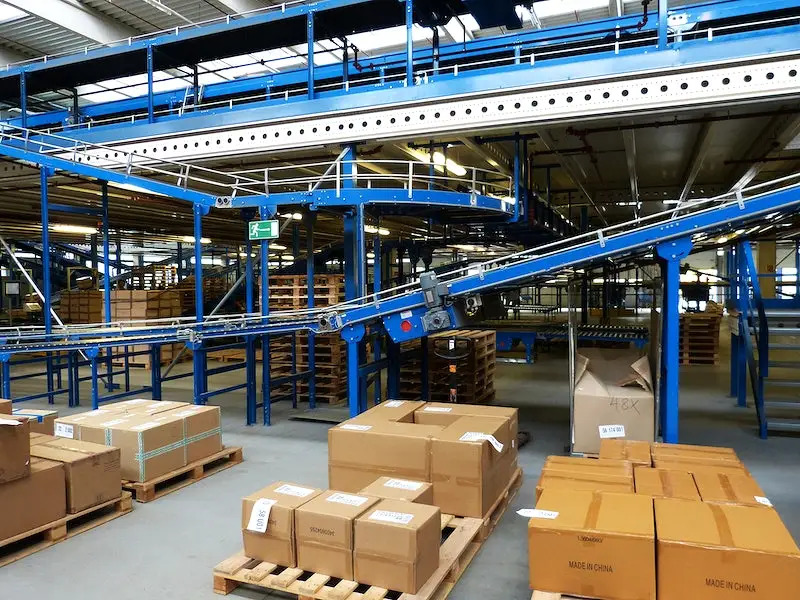
Industrial automation has transformed the way businesses operate, enabling them to increase efficiency, reduce costs, and improve product quality. As we enter 2024, the industrial automation landscape is poised for significant advancements driven by emerging technologies and innovative applications. According to Rockwell Automation, five key trends are expected to shape the future of industrial automation: the rise of Industry 4.0, the increasing adoption of artificial intelligence (AI) and machine learning, the expansion of the Internet of Things (IoT) into industrial settings, the growth of collaborative robots (cobots), and the integration of predictive maintenance technologies.
These trends will have a profound impact on various industries, from manufacturing and logistics to healthcare and energy. For instance, AI and machine learning will enable more accurate predictions and real-time decisions, leading to enhanced production performance and reduced downtime. The expansion of IoT will facilitate greater connectivity and data exchange, enabling real-time monitoring and optimization of processes. Cobots will become more prevalent, offering a cost-effective and flexible alternative to traditional industrial robotics. Predictive maintenance technologies will reduce equipment failures and extend the lifespan of machinery.
The adoption of these technologies will also necessitate changes in the workforce, as employees need to acquire new skills to operate and maintain these advanced systems. This shift will create new opportunities for education and training, ensuring that workers are equipped to leverage the benefits of industrial automation effectively.
As industrial automation continues to evolve, it is essential to understand how these advancements will impact businesses, workers, and the broader economy. By exploring the current trends and their implications, we can better prepare for the future and capitalize on the opportunities that industrial automation offers. This article will delve into the five key trends expected to shape the future of industrial automation in 2024, providing insights into how these developments can elevate your production and drive growth.
Industrial automation has become a crucial component of modern manufacturing processes, enabling improved efficiency, quality, and productivity. It is essential to understand the key trends and technologies that will shape the future of industrial automation. In this article, we will explore five significant ways in which industrial automation can elevate your production in 2024.
1. Predictive Maintenance via IoT Sensors
One of the most significant advancements in industrial automation is the integration of Internet of Things (IoT) sensors. These sensors detect and transmit data on the condition of machinery and equipment, allowing for predictive maintenance. This technology can prevent costly downtime and extend the lifespan of machinery. For instance, sensors can monitor vibrations, temperatures, and other key performance indicators (KPIs) to predict when a machine is likely to fail and schedule maintenance accordingly. This reduces the risk of unexpected breakdowns and ensures that production continues uninterrupted.
2. Artificial Intelligence (AI) and Machine Learning (ML)
AI and ML are revolutionizing industrial automation by enabling data-driven decision-making. These technologies collect and analyze vast amounts of data to identify patterns and anomalies, which can be used to optimize processes. For example, AI can be used to predict and prevent equipment failures by analyzing sensor data and historical maintenance records. Additionally, ML can be employed to optimize production schedules, ensuring that the right amount of materials and resources are available at the right time. This leads to increased efficiency and reduced waste.
3. Cobots and Collaborative Robotics
The integration of collaborative robots (cobots) into industrial processes is another significant trend. Cobots are designed to work safely alongside humans, enabling them to perform tasks that are too hazardous or repetitive for humans. These robots can handle tasks such as assembly, welding, and handling heavy loads, freeing up human workers to focus on more complex tasks. This collaboration enhances both safety and productivity, as cobots can operate continuously without risk of fatigue or injury.
4. Digital Twin Technology
Digital twin technology is another innovation that is transforming industrial automation. This technology creates a digital replica of physical assets, processes, and systems. The digital twin is updated in real-time with data from sensors and other sources. This allows for detailed simulations of various scenarios, enabling manufacturers to test and optimize processes without affecting actual production. Digital twins can also be used to predict and prevent potential issues before they arise, ensuring that production remains stable and efficient.
5. Cybersecurity and Data Protection in Industrial Automation
Cybersecurity is a critical aspect of industrial automation, as connected systems and devices are vulnerable to cyber threats. In 2024, manufacturers must prioritize robust cybersecurity measures to protect their systems and data. This includes implementing secure network architectures, regular updates and patches, and robust authentication and authorization protocols. Additionally, manufacturers must ensure that their data protection measures are compliant with relevant regulations, such as GDPR and CCPA. By prioritizing cybersecurity, manufacturers can safeguard their operations and maintain the trust of their customers.
The future of industrial automation looks bright. By embracing technologies like IoT sensors, AI and ML, cobots, digital twins, and robust cybersecurity measures, manufacturers can elevate their production and stay ahead of the competition. These advancements will lead to improved efficiency, quality, and productivity, ensuring that manufacturers can meet the demands of an increasingly complex and dynamic global market.
You may also be interested in: IoT Solutions | Corvalent
Ready to elevate your mission-critical operations? From medical equipment to military systems, our USA-built Industrial Computing solutions deliver unmatched customizability, performance and longevity. Join industry leaders who trust Corvalent’s 30 years of innovation in industrial computing. Maximize profit and performance. Request a quote or technical information now!
